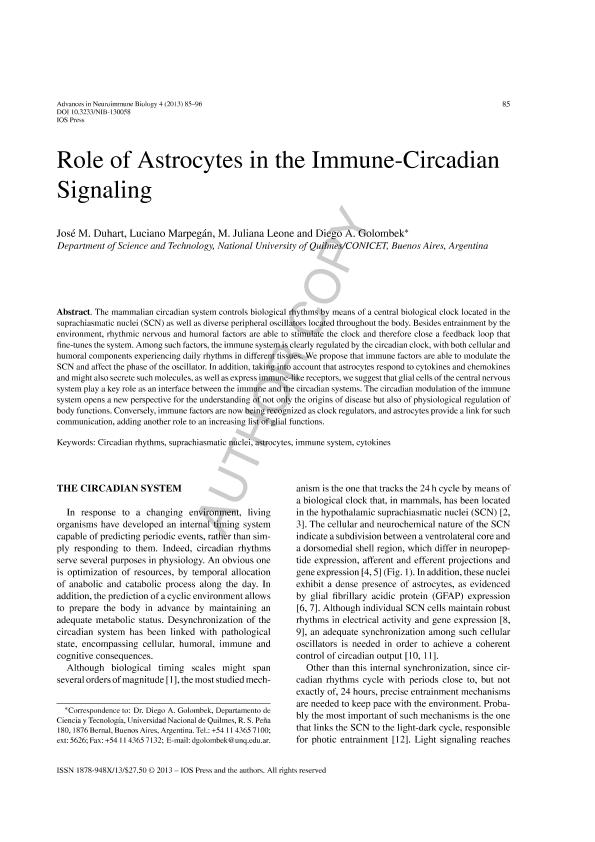Artículo
Role of astrocytes in the immune-circadian signaling
Fecha de publicación:
10/2013
Editorial:
IOS Press
Revista:
Advances in Neuroimmune Biology
ISSN:
1878-948X
Idioma:
Inglés
Tipo de recurso:
Artículo publicado
Clasificación temática:
Resumen
The mammalian circadian system controls biological rhythms by means of a central biological clock located in the suprachiasmatic nuclei (SCN) as well as diverse peripheral oscillators located throughout the body. Besides entrainment by the environment, rhythmic nervous and humoral factors are able to stimulate the clock and therefore close a feedback loop that fine-tunes the system. Among such factors, the immune system is clearly regulated by the circadian clock, with both cellular and humoral components experiencing daily rhythms in different tissues. We propose that immune factors are able to modulate the SCN and affect the phase of the oscillator. In addition, taking into account that astrocytes respond to cytokines and chemokines and might also secrete such molecules, as well as express immune-like receptors, we suggest that glial cells of the central nervous system play a key role as an interface between the immune and the circadian systems. The circadian modulation of the immune system opens a new perspective for the understanding of not only the origins of disease but also of physiological regulation of body functions. Conversely, immune factors are now being recognized as clock regulators, and astrocytes provide a link for such communication, adding another role to an increasing list of glial functions.
Palabras clave:
Circadian Rhythms
,
Suprachiasmatic Nuclei
,
Astrocytes
,
Immune System
,
Cytokines
Archivos asociados
Licencia
Identificadores
Colecciones
Articulos(SEDE CENTRAL)
Articulos de SEDE CENTRAL
Articulos de SEDE CENTRAL
Citación
Duhart, José Manuel; Marpegan, Luciano; Leone, Maria Juliana; Golombek, Diego Andrés; Role of astrocytes in the immune-circadian signaling; IOS Press; Advances in Neuroimmune Biology; 4; 2; 10-2013; 85-96
Compartir
Altmétricas




